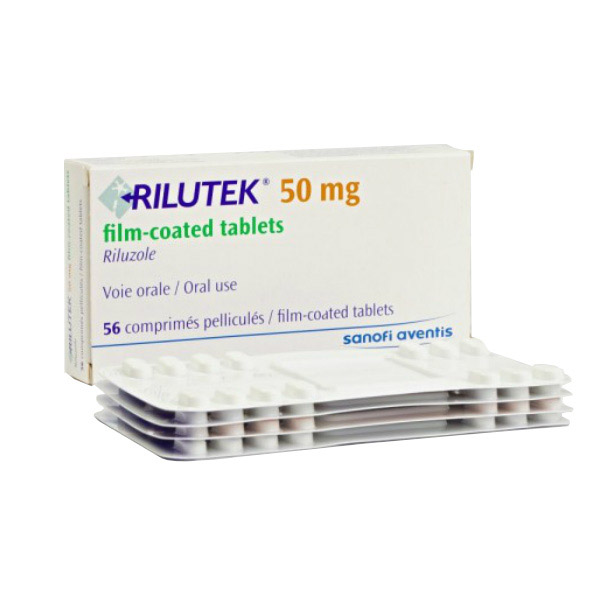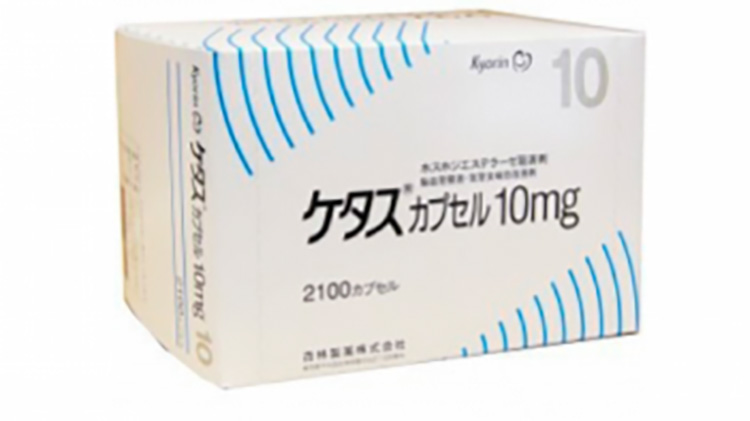Rilutek (riluzole) vs Ketas (ibudilast)
Rilutek (riluzole) vs Ketas (ibudilast)
Rilutek (riluzole) is a medication approved by the FDA primarily for the treatment of amyotrophic lateral sclerosis (ALS), and it works by reducing the release of glutamate, which is thought to be involved in the damage of motor neurons. Ketas (ibudilast) is not approved in the United States but is used in Japan for the treatment of asthma and post-stroke complications, and it has anti-inflammatory properties and is a phosphodiesterase inhibitor. When deciding between these medications, it is crucial to consider the specific condition being treated, as Rilutek is specifically indicated for ALS, while Ketas has different uses and is not commonly prescribed for ALS.
Difference between Rilutek and Ketas
| Metric | Rilutek (riluzole) | Ketas (ibudilast) |
|---|---|---|
| Generic name | Riluzole | Ibudilast |
| Indications | Amyotrophic lateral sclerosis (ALS) | Asthma, cerebrovascular disorders, and multiple sclerosis (off-label) |
| Mechanism of action | Glutamate antagonist | Phosphodiesterase inhibitor, suppresses pro-inflammatory cytokines |
| Brand names | Rilutek, Tiglutik | Ketas, Eyevinal |
| Administrative route | Oral | Oral |
| Side effects | Dizziness, gastrointestinal disturbances, elevated liver enzymes, decreased lung function | Nausea, diarrhea, rash, abdominal pain |
| Contraindications | Liver disease, caution in patients with lung disease | Not well defined, caution in patients with hepatic impairment |
| Drug class | Glutamate modulating agent | Phosphodiesterase inhibitor |
| Manufacturer | Sanofi | Kyorin Pharmaceutical Co., Ltd. |
Efficacy
Efficacy of Rilutek (Riluzole) in ALS
Rilutek, with the active ingredient riluzole, is a medication that has been approved by regulatory agencies for the treatment of Amyotrophic Lateral Sclerosis (ALS). The efficacy of Rilutek in the treatment of ALS has been demonstrated in several clinical trials. It is believed to work by reducing the release of glutamate, which is thought to be involved in the death of neurons that is characteristic of ALS. Studies have shown that Rilutek can extend survival by several months, especially in the bulbar form of the disease, which affects speech and swallowing. Additionally, Rilutek may delay the need for a tracheostomy (a surgical procedure to create an opening in the neck to place a tube into a person's windpipe) and improve some measures of muscle strength and lung function.
Considerations in the Use of Rilutek
While Rilutek has been shown to be effective in prolonging life in ALS patients, it is not a cure for the disease. The benefits of Rilutek are generally modest, and the progression of ALS may continue despite treatment. It is important for patients and healthcare providers to weigh the benefits of Rilutek against its potential side effects, which can include liver function abnormalities, nausea, dizziness, and weakness. Regular monitoring of liver function tests is recommended for patients taking Rilutek. The decision to use Rilutek should be made on an individual basis, considering each patient's specific clinical situation.
Efficacy of Ketas (Ibudilast) in ALS
Ketas, which contains the active ingredient ibudilast, is not currently approved for the treatment of ALS, but it has been studied for its potential off-label use in this condition. Ibudilast is a phosphodiesterase inhibitor that also possesses anti-inflammatory properties. The rationale for its use in ALS is based on the hypothesis that inflammation contributes to the progression of the disease. Early-phase clinical trials have suggested that ibudilast may have a neuroprotective effect in ALS, potentially slowing the progression of the disease. However, these findings require confirmation in larger, more definitive clinical trials to fully establish the efficacy of ibudilast in ALS.
Current Status of Ibudilast for ALS
As of the current knowledge cutoff date, ibudilast is not an approved treatment for ALS, and its use in this context would be considered off-label. Researchers continue to investigate its potential benefits and safety profile in patients with ALS. Patients interested in the off-label use of ibudilast should consult with their healthcare provider, and they may also consider participating in clinical trials that are evaluating the drug's efficacy and safety in ALS. It is important for patients to understand the experimental nature of ibudilast's use in ALS and to have realistic expectations regarding its potential benefits and risks.
Regulatory Agency Approvals
Rilutek
-
European Medical Agency (EMA), European Union

-
Food and Drug Administration (FDA), USA

-
Health Canada

-
Therapeutic Goods Administration (TGA), Australia

-
Medicines & Healthcare products Regulatory Agency (MHRA), United Kingdom

-
Medsafe (NZ)

Ketas
-
Pharmaceuticals and Medical Devices Agency (PMDA), Japan

Access Rilutek or Ketas today
If Rilutek or Ketas are not approved or available in your country (e.g. due to supply issues), you can access them via Everyone.org.
How it works

Make an enquiry
Choose the medicine you want to buy, answer a couple of questions, and upload your prescription to speed things up. We’ll get back to you within 24 hours.


Make an enquiry
Choose the medicine you want to buy, answer a couple of questions, and upload your prescription to speed things up. We’ll get back to you within 24 hours.


Breeze through the paperwork
We'll guide you through the required documents for importing unapproved medicine, ensuring you have all the necessary information.


Get a personalized quote
We’ll prepare a quote for you, including medicine costs and any shipping, administrative, or import fees that may apply.


Receive your medicine
Accept the quote and we’ll handle the rest - sourcing and safely delivering your medicine.

Some text on this page has been automatically generated. Speak to your physician before you start a new treatment or medication.
Let's talk
If you have any questions, call us or send us a message through WhatsApp or email:
Contact us




